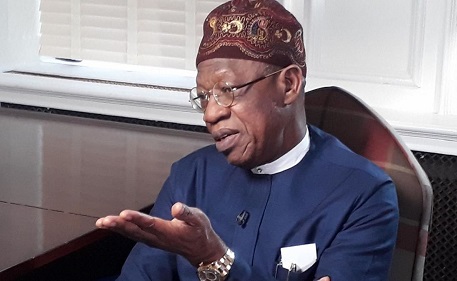A Federal High Court sitting in Abuja on Tuesday, denied businessman Ibrahim Dende’s request to prevent an investigative journalist, founder of the Foundation for Investigative Journalism, Fisayo Soyombo, from writing further about him.
The court declined to hear the application but instead directed the claimant’s counsel to put the defendants on notice.
Dende filed this request as part of his lawsuit against Soyombo and the FIJ following an undercover investigation that portrayed him as a “smuggler and gunrunner.”
A certified true copy of the court’s proceedings from May 21 revealed that IBD Dende had previously sought an ex parte order to restrain Soyombo, FIJ and Arise from further defamatory publications before serving court processes on them.
The court declined to hear the application and instead instructed the claimant’s counsel to notify the defendants.
Soyombo, in response to repeated complaints about Nigeria’s porous borders, investigated by attempting to illegally import 100 bags of rice from the Republic of Benin into Nigeria. He succeeded without any security resistance, using information from corrupt Nigeria Customs Service officials who betrayed patrol teams by informing smugglers of their colleagues’ schedules and the optimal times for smuggling.
His report, titled “Undercover As A Smuggler,” also implicated Dende as the biggest smuggler in the South West and was followed by several tweets about smuggled goods mentioning Dende as the mastermind.
On May 3, Dende, known as IBD Dende, filed a lawsuit for alleged defamation against Soyombo, FIJ and Arise Group after the television station aired the smuggling documentary.
During the resumed hearing on July 2, Justice Binta Mohammed of the FCT High Court, Abuja Judicial Division, heard IBD Dende’s application for an interlocutory injunction to restrain the defendants from further defamatory publications.
In the written argument submitted by Dende’s counsel, it was contended that the first and second defendants had consistently defamed and maligned Dende’s character.
It was alleged that Soyombo continued to publish statements about Dende as recently as June 3, subjecting him to a social media trial while the lawsuit was still pending.
Hence, counsel argued that the court needed to grant an injunction to stop the “continuous and daily defamatory publications” against the claimant, pending the final determination of the suit.
He asserted that the right to freedom of expression under the constitution does not permit any journalist to defame someone’s character, discrediting the viral video published by FIJ, which labelled Dende as a smuggler and gunrunner.
In the affidavit filed in response to FIJ, Dende maintained that the video showed nothing more than a “verbal altercation” with customs officers and could not be concluded to involve smuggled goods belonging to him.
He stated that he is a licensed customs clearing and forwarding agent, whose job is to facilitate the transport of goods into and out of Nigeria.
Contrary to IBD Dende’s application for an injunction, FIJ affirmed the truth of its publications about Dende, urging the court to dismiss the application.
They argued that the injunction was unconstitutional, as it sought prior restraint of the press and would stifle press freedom.
In the written argument submitted on behalf of Soyombo and FIJ, their counsel contended that suppressing the press before a trial violates the constitutional right to free speech and freedom of the press.
They stated that the press has a public duty to expose wrongdoing and should not be subjected to censorship or restrictions in the public interest.
The counsel also argued that granting the application for an injunction to prevent further libel would prejudice the main suit by implying that previous publications were defamatory and required halting further defamatory content.
The counsel added that IBD Dende, who had admitted under oath to assaulting law enforcement officers, did not deserve the equitable relief of an injunction against the press.
FIJ contended that those who seek equity must do so with clean hands, stating that ranting an injunction in favour of a party who has engaged in such misconduct, as shown in the video, would be a “perverse incentive.”
Soyombo and FIJ have also filed a defence to the main suit along with a list of witnesses to testify.
The counsel concluded their arguments, and the court reserved its ruling on the application for an interlocutory injunction to a later date, which will be communicated to the parties.
[Punch]




